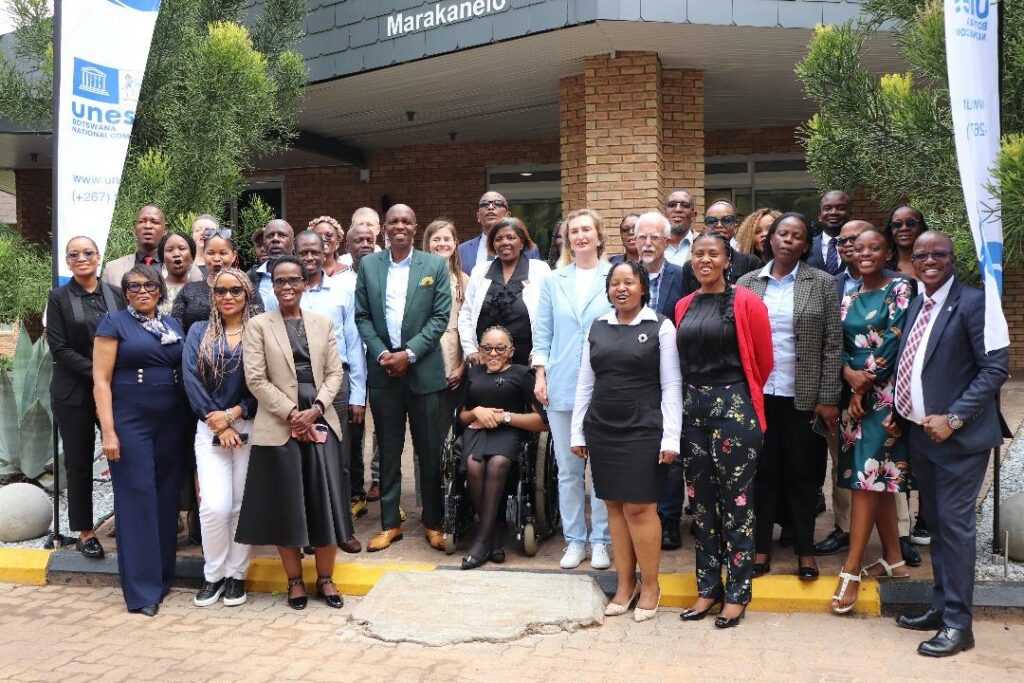Cooperation with Botswana National Commission for UNESCO
In 2023, we began building a partnership with the Botswana National Commission for UNESCO. Our collaboration started with mapping out potential areas and activities for future cooperation. The first area of shared interest that emerged was education for sustainable development and the UNESCO Associated Schools Network—both of which are strong under UNESCO’s mandate, well-established in Estonia, and highly relevant in Botswana in the context of climate change and education reform. In addition to the national commissions, we’ve included other partners in the discussions at various stages. These include the Baltic Sea Project coordinator of the Estonian UNESCO Associated Schools from Tartu Nature House, Aqua Consult’s Baltic branch from the private sector—bringing experience with African projects—and more recently, the international initiative Let’s Do It World. On the Botswana side, representatives from the Ministry of Education, schools, civil society, and the local water community have taken part in the talks. While a joint project has not yet been launched, we are continuing to work toward that goal.
Following a short visit by the Estonian National Commission for UNESCO to Gaborone in 2024, a second potential area of cooperation emerged: the creative economy. In March 2025, a pilot workshop on heritage and creative economy took place in Botswana. The participants of the workshop were policymakers, young professionals, and university professors. The first part of the workshop offered an overview of Botswana’s creative economy, with presentations from representatives of the Ministry of Arts and Sports, the Botswana Arts Council, the University of Botswana, the National Museum, and the NGO Botswana Society.

Participants of the heritage and creative economy workshop, 2025
From Estonia, experts shared insights into heritage-based business models (Ragnar Siil, Creativity Lab), added value in heritage (Ave Matsin, University of Tartu Viljandi Culture Academy), and connecting creativity with entrepreneurship in higher education (Jorma Sarv, University of Tartu Viljandi Culture Academy). The Estonian contributions were warmly received, with many follow-up questions and reflections on the knowledge shared during the session. The workshop was organized in collaboration with the Botswana National Commission for UNESCO and the NGO Creative Estonia, and was funded by the Estonian Ministry of Culture.
At the Estonian National Commission for UNESCO, cooperation with Botswana is coordinated by Madli Kumpas, Education and Science Programme Coordinator. For more information, please contact: madli.kumpas@kul.ee.


